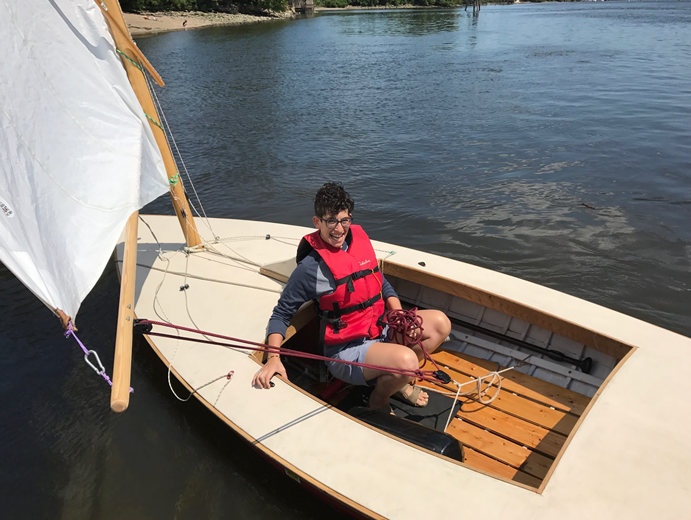
I had a chance recently to sit down with my dear colleague Emet Bergman of Transformative Psychotherpay, LLC to talk about their work in social emotional learning, particularly as it applies to the adults who work with young people. I have admired Emet’s work since they were with the Philadelphia Wooden Boat Factory, a program featured in Preparing Youth to Thrive, and have been lucky enough to get to know Emet more and more over the last four years as we both worked with out-of-school time intermediaries and networks. Emet and I regularly have rich conversations about the work they are doing across not just the traditional education sector or out-of-school time sector, but across the allied youth fields and how we can be supporting ourselves, young people, and youth workers in these still challenging times.
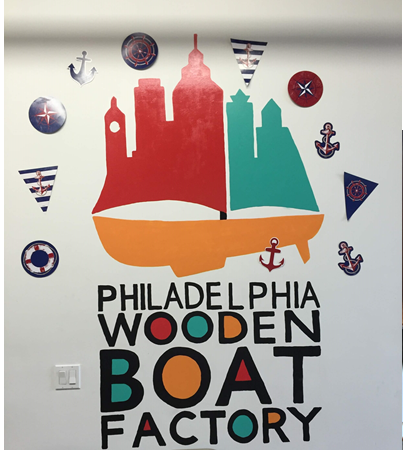
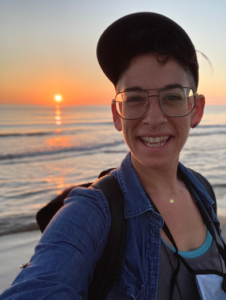
Emet Bergman brings their passion for adult learning and background in dynamic clinical intervention to their work as a social worker and facilitator. Trained in clinical social work, Emet has been providing clinical services and psychotherapy, as well as training and facilitation for 8 years. Emet’s commitment to active learning and engagement balanced with supportive counseling and safe environment coalesced in supporting youth programs and continues to grow throughout their career in the field.
Emet is particularly committed to using trauma-informed principles and practices that attend to social location and intersectional oppression in supporting equitable best practice for all. Emet believes that social emotional learning is deeply human and universal for adults and youth alike. In their free time Emet enjoys cycling, gardening, engaging in community initiatives, baking, boxing, boating, and participating in revolution.
On Balancing Social Emotional Learning, Wellness, and Mental Illness Support
Robert Sherman has written a lot lately really trying to help us all remember and understand that mental well-being, social-emotional learning, and mental illness are all part of a package, but they aren’t the same thing. I’m wondering in your current work, where you have this balance of your clinical work directly with clients, and where you’re also supporting youth development professionals, networks of professionals, other mental health and health professionals, how does that work all intersect and fit together? And how do you think about balance between building social emotional skills and well-being with dealing with mental illness and trauma?
I have been in therapy for 12 year and I have learned through that process, as well as my own cadre of practices around mindfulness and self awareness and grounding and embodiment, to be in touch with and find a place of rest within myself, I think is the foundation for all of those different branches, whether working with folk in trauma, healing spaces, or working with folk who are not necessarily engaged in trauma support work (an out-of-school time provider, for example).
What can be such a challenge in all of these different realms is when our own stuff gets activated, so to speak. So much of what I hear from youth development providers and professionals – the adults, as well as the young folks in these spaces – is, “What do I do when things get challenging when conflict comes up?” When that classic, more school time sort of language of “behavior management” becomes really hard.
I think a lot of that comes from being able to start from a regulated place within myself, and then beginning to offer and to connect with other people around the ways in which they engage in those types of practices; the ways in which they understand and can feel into when they are becoming activated or when they’re engaged in a interpersonal challenging space with other adults in their work environment, with young folk in their work environment.
That can be both such a part of our own social emotional growth and learning, as well as such a barrier to us being able to continue that social and emotional growth and learning together. I think the clinical work has informed a lot of the practice that helps me to stay grounded and safe. And then also really connects to a much more sort of nuanced way of assessing and modeling some of that in partnership with adults in these youth development spaces.
On The Well Being of the Youth Serving Workforce
I’ll start by acknowledging that I see most people at a lower level of wellness and or resilience over these last couple of years than pre pandemic – both within my clinical work with individual clients and families, as well as supporting groups of youth workers. Adults have been, in many ways having to do sort of double duty, often managing what it is to transition and run programming for young people who are in a myriad different environments, while also caring for their own kiddos their own families, experiencing enormous amounts of loss. And in a lot of ways, having to roll all of that together at the exact same time. And with very little support, and understanding how that comes into their work environment.
And so this very sort of archaic idea of leaving your own world at the door when you enter the work environment, I think less and less feels like an expectation in out-of-school time environments. But, as that is not as much of an expectation, there hasn’t been enough support to catch up with how we navigate what it looks like when we are bringing our full selves into this work. Our full selves, our grieving selves, our folks who have been overburdened and over tasked and potentially at risk ourselves and living with the kind of fear that has been so prevalent in in our communities during this time.
On Self Care for Youth Workers
We’ve worked most closely together was in Tulsa. And one of the things we heard a lot from them this last year was that that need for self-care – that need for focus on our own social emotional skills – was really ever present. What tips do you have in this time about what youth workers (and I want to stick with youth workers in the broadest sense – wherever adults might be working with caring for young people) need to really be most effective in their work with young people?
When I draw from my experience at the Philadelphia Wooden Boat Factory, one of the things that felt incredibly supportive for adults who are supporting young folk was case conferencing, which is sort of a clinical name for it. It was a time for all of the staff to come together, and within parameters and with support, to really be able to articulate some of what was happening, both in program and within themselves, in response to the challenges and the ways in which young folk were interacting with one another and with staff as well. To have a really safe space in which to share openly without judgment, and receive a blend of both support and affirmation that their experience and that their emotional responses to those experiences are valid. And I would say that extends right, when we think about self care,
I have a critique of the way that self care has become so commercialized and become something that folks feel that there’s such a call for them to do that it just becomes something else on the list that they’re either not doing enough or doing incorrectly. In this framing, self care is actually about receiving support for your own experience, and carving out intentional time, around that being a value as a process. And not just for the content.
There’s value in humans connecting with one another, and thus also connecting with themself in their experience around how they are receiving and responding to what’s going on with and for the youth they’re serving.
I know that for a lot of us at the Boat Factory hearing some of the stories (and this was all pre pandemic) that were coming from young folk – who were vulnerable and open because of the safety of that space and the culture of that program – created enormous internal conflict, and sometimes vicarious trauma or suffering on behalf of the adults. The adults were learning about conditions in which kiddos are living or the types of conflicts that kiddos are witnessing within the city, or in public spaces or even in their homes. There was value in having space in which to share about that openly to receive support and encouragement, and also engage in practices around mindfulness; around breath practice; around concrete ways, skills, and tools to navigate what happens when you start to get that feeling in your belly that is activated by a kiddo clearly experiencing a lot of pain and suffering. It allowed us to be able to meet ourselves there and connect with other adults in safe spaces in order to navigate some of that embodied experience and then also to figure out in community, as opposed to in isolation, how to then return to those groups of young folk with the kind of compassion and support that they need and deserve.
I just really appreciate the reminder of the parallels in our developmental processes. One of my one of my old bosses when I was with an organization called Assets for Colorado Youth used to say that good positive youth development is good human development. And I think that’s such a great reminder, especially in times, in times of crisis and coming out of times of crisis, that actually what we what we know and do sometimes intrinsically for the young people, we need to remember to know and do intrinsically for the adults as well.

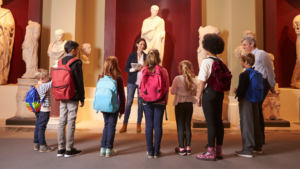
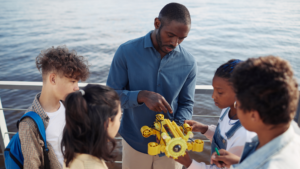
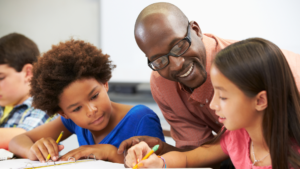
No comment yet, add your voice below!